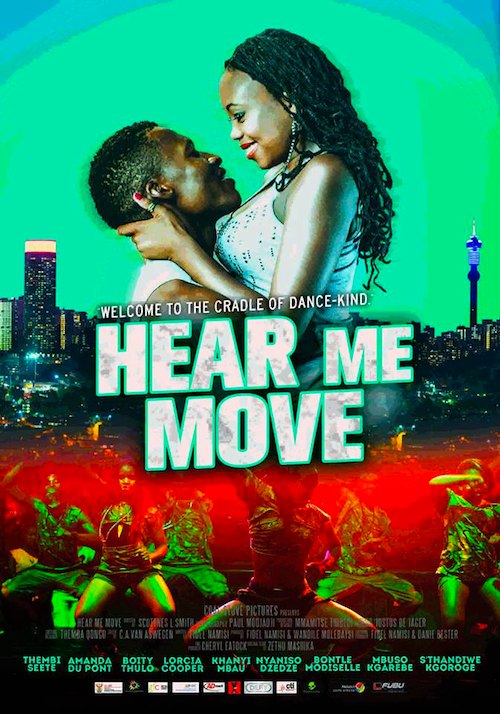By Joe Bendel. It is like a South African Step Up film, but its moves combine hip hop dancing and sbujwa. That would be the latest form of South African street dancing, as of about a year ago. It evolved out of pantsula, the relatively old school style that Muzi’s late, disgraced father made his international reputation dancing. Spikiri toured America, but his involvement with drugs killed the legendary dancer shortly after his return. As a result, the high school student promised his domineering mother he would never dance like his father. However, Muzi has his father’s feet and they will not be denied indefinitely in Scottnes L. Smith’s Hear Me Move, which screens during the 2015 African Diaspora International Film Festival in New York.
Muzi knows he is a dancer but he has never joined a crew, out of deference to his mother. As a solo performer, opportunities are limited, but he still has to deal with the challenges that come from being Spikiri’s son. However, his father’s old promoter “Shoes” recognizes his potential, inviting him to join the crew he manages, Sbujwa Nation. This does not sit well with some members, particularly their featured dancer Prince. In fact, Prince will soon leave to form his own upstart crew, Ambition.
 As Muzi struggles to adapt to the demands of ensemble dancing, Shoes starts to level with him. There is indeed a reason why Prince so resents him. He is the illegitimate son Spikiri never acknowledged. Revelations like that mess with Muzi’s head, but Khanyi helps keep him sort of get grounded. She might even be a potential romantic interest if Muzi can get his act together, but that is going to take a bit of time.
As Muzi struggles to adapt to the demands of ensemble dancing, Shoes starts to level with him. There is indeed a reason why Prince so resents him. He is the illegitimate son Spikiri never acknowledged. Revelations like that mess with Muzi’s head, but Khanyi helps keep him sort of get grounded. She might even be a potential romantic interest if Muzi can get his act together, but that is going to take a bit of time.
As dance movies go, Fidel Namisi’s screenplay makes Make Your Move and Born to Dance look like they were written by Paddy Chayefsky. Seriously, the business with old man Spikiri is just eye-rollingly melodramatic. However, the dancing is suitably dynamic and often very well framed by Smith, who almost always shows us the entire crew in full frame rather than self-defeating close-ups.
The cast is also appealingly young and energetic, particularly Bontle Modiselle, who makes a credible bid for movie stardom as the down-to-earth Khanyi. Mbuso Kgarebe also has the right sort of dangerous charisma for Prince, but the Nyaniso Dzedze just sort of survives as the excessively angst-ridden Muzi.
There is no denying the attractiveness of Hear Me Move’s cast and routines, but the Sbujwa-hip hop synthesis are not as distinctive as the wildly cool taiko drumming fusions choreographed by the awesome Yako Miyamoto for Make Your Move. Still, it has enough of a local spin to appeal to those who appreciate South African street dancing. Honestly, it is rather fun in a slightly cheesy way. Recommended accordingly for dance movie fans, Hear Me Move screens this Wednesday (12/9) at the Bow Tie Chelsea and Friday (12/11) at the MIST Harlem, as part of the special focus on South African cinema at this year’s ADIFF.
LFM GRADE: B-
Posted on December 7th, 2015 at 12:22pm.